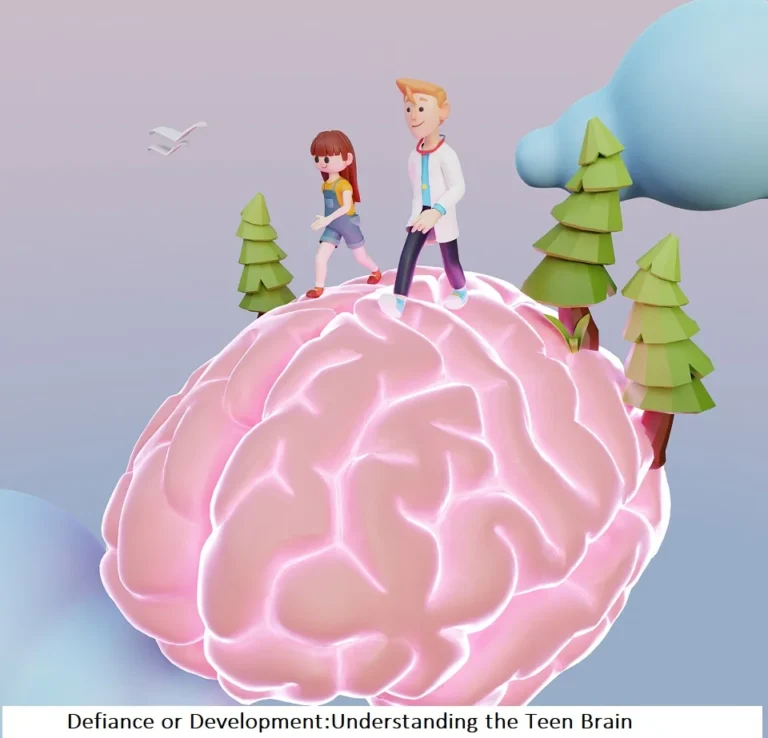
Raising teenagers is often described as the most challenging phase of parenting—a whirlwind of eye rolls, closed doors, and unpredictable emotions. Yet, what if much of the struggle comes from outdated expectations rather than the teenager themselves? After years of research and conversations with developmental psychologists, family therapists, and, most importantly, parents who’ve navigated this journey successfully, we’ve uncovered four counterintuitive truths that can transform these years from a battlefield to a bridge-building era.
Truth #1: Your Teen’s “Rebellion” Is Actually a Bid for Independence (And That’s Healthy)
The slammed door isn’t about you. The contentious debate over curfew isn’t a personal attack. What we label as rebellion is actually your adolescent’s developmentally necessary push for autonomy.
- The Science: The teenage brain is undergoing massive renovation, particularly in the prefrontal cortex (responsible for judgment and decision-making). Meanwhile, the emotional centers are in overdrive. This biological recipe makes them seem irrational, but it’s their system learning to function independently.
- The Shift: Instead of seeing defiance, see experimentation. They’re testing boundaries to understand their own limits and values, separate from yours.
- The Actionable Takeaway: Choose your battles wisely. Provide a framework of non-negotiable safety rules (e.g., “You must tell us where you are”), but within that, offer increasing amounts of choice and responsibility. Ask, “Is this a matter of safety/ethics, or is it a matter of taste?” Arguing over mismatched socks is a poor use of your emotional capital.
Truth #2: Connection Before Correction—Always
When a teen makes a mistake (and they will), our instinct is often to lead with the lesson: the lecture, the consequence, the “I told you so.” This approach almost guarantees shutdown.
- The Surprising Reality: A teenager can only hear your “correction” if they feel emotionally connected to you in that moment. A brain flooded with shame or defensiveness cannot process logic.
- The Shift: Lead with empathy, not judgment. Start sentences with “That sounds really difficult…” or “I can see why you felt that way…” before ever discussing choices or consequences.
- The Actionable Takeaway: Master the “Sideways Chat.” Teens often open up when direct eye contact is removed. Try talking while driving, cooking, or walking the dog. The pressure is off, and the connection flows more naturally.
Also Read : Tips to Assist Your Kid in Picking Secondary School Subjects
Truth #3: They Need You More Than They Let On (Just in a Different Way)
The toddler who clung to your leg has been replaced by a near-adult who might grunt in your general direction. It’s easy to feel obsolete. The truth is, your role is more crucial than ever—it’s just changed from manager to consultant.
- The Reality: Your teen is your home base. Your steady, non-reactive presence is the secure foundation from which they explore a scary, complex world. Studies consistently show that teens with strong, attached relationships with parents have better mental health, academic outcomes, and risk avoidance.
- The Shift: Stop waiting for them to come to you for a deep talk. Your presence is the invitation. Just being in the same space, available but not intrusive, sends a powerful signal: “I’m here when you’re ready.”
- The Actionable Takeaway: Implement the “Open-Door Policy” (literally and figuratively). Let them know you’re available without forcing interaction. A simple, “I’m heading to the grocery store if you want to ride along, no pressure,” can work wonders.
Also Read : Top 5 Measures Parents Must Take To Avoid Teen Accidents
Truth #4: Your Goal Isn’t to Raise a “Happy Teenager”—It’s to Raise a Resilient Adult
Our culture obsesses over teen happiness, leading parents to swoop in and remove any discomfort. This is a well-intentioned mistake.
- The Counterintuitive Truth: The pain points of adolescence—social friction, academic pressure, disappointment—are not bugs in the system; they are essential features. This is the training ground for adult resilience. By constantly intervening, we rob them of the chance to build coping skills.
- The Shift: Reframe your role from “happiness guardian” to “coach.” Your job isn’t to win the game for them, but to help them develop the skills to play it themselves.
- The Actionable Takeaway: Practice supportive questioning. Instead of, “I’ll email your teacher about that unfair grade!” try, “That’s a tough situation. What do you think your options are?” Guide them to problem-solve, don’t problem-solve for them.
Also Read : Impact of Society on Teen Behavior, Attitude and Character Development
The Path Forward
Raising teenagers successfully requires a paradigm shift. It’s less about control and more about influence. Less about fixing and more about guiding. Less about surviving and more about connecting.
These years are not a detour from your relationship; they are the critical process of transforming it from one of dependency to one of mutual respect. By embracing these four truths—seeing rebellion as growth, prioritizing connection, understanding your evolving role, and valuing resilience over temporary happiness—you do more than survive the teenage years. You build an adult relationship with your child that will last a lifetime.
FAQ Section: Raising Teenagers
A. This is the #1 challenge in raising teenagers. Instead of forcing face-to-face conversations, try “sideways talking” during car rides or while cooking together. Ask open-ended questions about their interests (not just grades or chores), and practice listening without immediately giving advice. Most importantly, don’t take the silence personally—it’s usually about their developing independence, not rejection of you.
A. Rather than counting hours, focus on balance and boundaries. Establish tech-free zones (like the dinner table) and times (especially before bed). Work with your teen to create a family media plan that prioritizes sleep, homework, and face-to-face connection. Remember, not all screen time is equal—educational use differs from endless social media scrolling.
A. Yes, but with transparency. Tell your teen you’ll be checking their accounts occasionally—secret monitoring destroys trust. Focus on teaching digital safety and critical thinking rather than just policing. Have regular conversations about what they see online, and model healthy social media habits yourself. This approach to raising teenagers in the digital age builds responsibility, not resentment.
A. While mood swings are developmentally normal, watch for these red flags lasting two weeks or more: withdrawal from all friends and activities, major sleep/appetite changes, talk of hopelessness, or self-harm. If you see these patterns, trust your gut and seek professional advice. When raising teenagers, remember that your parental intuition is a powerful tool.
A. You’re a parent first. Teens need boundaries and guidance more than they need another friend. However, you can build a friendly, respectful relationship by showing genuine interest in their world, sharing appropriate stories from your life, and finding activities you both enjoy. The healthiest dynamic in raising teenagers is “authoritative parenting”—warm but with clear expectations.
A. Logical consequences work best. If they’re rude about using the car, they lose driving privileges for a period. If they damage something, they repair or pay for it. The key is consistency and connecting the consequence directly to the behavior. Avoid overly harsh punishments that damage your relationship—the goal in raising teenagers is teaching responsibility, not just imposing penalties.


